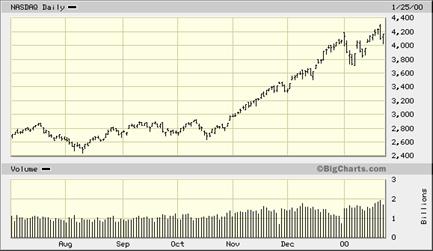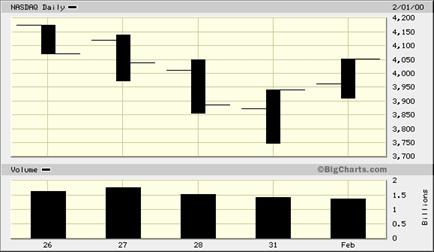Chapter 6 - Davos, January 26-February 1, 2000 - Episode 1
Listen to podcast

At the end of January or the beginning of February each year a great many newspaper and magazine columns are datelined “Davos, Switzerland”. There is a reason for this. Late January is the time of the annual meeting of the World Economic Forum, and reporters important enough to get invited can write about nothing else.
To get to Davos, you fly to Zurich. To get invited to the World Economic Forum in Davos is much more difficult. The World Economic Forum is an organization “committed to improving the state of the world”. It’s members are some 1,000 of the world’s largest corporations. They pay large dues, rumor says up to 300 thousand per year. And their executives are appropriately invited.
But many other people are invited as well. Political leaders are invited and come; for Davos 2000 they include Bill Clinton and Tony Blair, Israeli Prime Minister Ehud Barak and Palestinian leader Yasser Arafat, former Israeli Prime Minister Simon Peres and young King Abdu’llah of Jordan, and many, many more. There is an expectation that deals will be made; peace and commerce advanced.
The anointed thought leaders from the press are invited; Thomas Friedman, of course, but also David Kirkpatrick of Fortune and — much to the point this year — Tony Perkins of Red Herring and Upside fame. No one who hasn’t read both of these is anywhere near an IPO.
The corporate leaders for 2000 include Bill Gates of Microsoft and Scott McNeally of Sun (they have less use for each other than Barak and Arafat). Jeff Bezos from Amazon is here as well as Michael Dell. Michael Bloomberg — who is not yet a mayor — is attending as a business leader. There are Asian billionaires as well; Richard Li of Pacific Century Cyberworks and Masayoshi Son of Softbank are the most prominent. European business is represented mainly by the third to tenth generations of old companies with a sprinkling of telecom executives. South America and Africa are “underrepresented”.
To the discomfort of some the members, a smattering of Internet IPO CEOs have been invited as well. They are thought of as nouveau riche which they most spectacularly are. They have not been asked to participate in the major panels but they are on small panels. Some were invited in 1999 and 1998 before most of them were rich but when they were already hard at work changing the world. Most of them won’t be invited in 2001 or ever again.
Among the Internet IPO CEO invitees is Larry Lazard of hackoff.com. Inviting him caused some controversy in WEF’s normally placid Geneva headquarters. He was first considered in 1999 because of hackoff’s unique business model and rapid growth in book value but was rejected both because of his criminal background and, more importantly, the name of his company. The argument for 2000 had to be settled by Klaus Schwab himself, the founder and only leader the WEF has ever had. Herr Schwab, he was originally German, decided that 1) Larry was not the first criminal to be invited; 2) the name is offensive but it has a marketing purpose and there are many things about America that are offensive; 3) hackoff, with its marketcap now over five billion dollars, had to be invited. So Larry, who was previously only vaguely aware of the WEF and Davos, was invited and, as with all invitees, invited to bring his spouse. That’s why on Wednesday, January 26, 2000, Larry and Louise are disembarking into the caverns of Zurich airport after an overnight flight from Newark.
The trains leave from beneath Zurich airport. Larry and Louise have checked their bags through on Swiss Rail so it is an easy transition from plane to train. Clearly, some of the other people are also Davos-bound – they have the look. More to the point, they are proudly displaying WEF luggage tags which were thoughtfully distributed in advance.
Once beyond the suburbs of Zurich, they change trains to a line that makes the serious assault on the Alps necessary to get to Davos. Now the train is half-populated by people going to WEF and half by skiers who won’t be going to Davos this week because there is no room at the inn — or anywhere else in Davos.
It is snowing heavily, but the train continues to climb in its single-track ravine. It has a snowplow mounted on the engine, so snow swirls back past the windows of the cars. It’s hard to imagine where the snow goes once it blows by the train, since the ravine is narrow. But the train sticks to its schedule. Downward trains pass at stations where there are two tracks; synchronization is what one would expect in Switzerland.
There is nothing impressive about the station the Lazards debark at in Davos. It’s built of dirty yellow brick; scraps of paper dance with the snow on the platform; the wind is cutting. It’s not immediately clear where to go to get baggage; they don’t see any baggage unloaded from the train. Larry finds a door that leads to a lit room with a few suitcases in mostly empty racks. He goes in.
“Fuck,” says Larry to Louise when he comes out. “The bags aren’t here. They’re going to come ‘spater’. That’s later, I think. But I don’t know what the fuck he’s saying. He doesn’t speak any English. I thought all Swiss spoke English. I thought they knew how to run a railroad.”
They take a cab to their hotel — the Sunset Reiser. They have been warned that Davos doesn’t have nearly enough luxury hotel rooms for the five thousand or so luxury-accustomed guests who are attending. Rooms are assigned by the same mysterious process that gets people invited to Davos in the first place. World political leaders, who are surrounded by security people, need a lot of room; they take most of the space in the big resort hotels. Dues-paying corporate chieftains are next in the pecking order. Apparently, newly-minted paper billionaires whose companies have embarrassing names are at the bottom of the hotel heap.
“Fuck,” says Larry to Louise. “This hotel sucks. The phone has no jack; I’m gonna have to hack it or the wall apart to get online. We got those fucking — or actually non-fucking — European twin beds. The hot and cold water come out different faucets. The sink is stained. We’ll be lucky if the toilet flushes…”
“Everybody who knows we’re coming here is jealous,” says Louise. “Most people would sleep in a tent to say they were invited to Davos. They all want to know how we got invited.”
“Yeah, we’re cool,” Larry says. “But the hotel still sucks and we still don’t have our bags and…”
The phone rings. It is Magdala Rottenthur who has been deputized by Herr Schwab to be their guide and helper. She expected them to arrive about now and wants to know if she can show them around and help them with registration or anything else. The bags, she explains in very precise but idiomatic American English will, of course, not be here until tomorrow. Apparently the transfer always takes a day at the airport. Yes, certainly, the preparation kit should be amended to say that — you can almost hear her taking a note — and she is personally very sorry. Is there anything they need very much in the luggage? Any medicines? Does Mrs. Lazard need to get makeup?
But Larry and Louise are experienced travelers; they packed their short-term needs into their carry-ons. There won’t be a problem unless the bags don’t come by tomorrow night. But, wait, Larry has no suit until the bags come.
That is not a problem, says Magdala. Not at all. At least half the men don’t wear suits to the panels. Just a sports coat is fine, preferable in fact. But Larry doesn’t have a sports coat either in his carry-on or delayed baggage. Not a problem either; some men just wear a shirt with a collar. Does he have that?
Yes.
Nothing being a problem, they agree to meet at the Congress Center. It is just up the street from Sunset Reiser. But they must be very sure to go the right way on the street, because just past the Sunset Reiser is the area where the anti-globalization protestors have gathered. The demonstrators have, unfortunately, somehow made their way to Davos even though they were supposed to be kept one town away. However, the Swiss police have prepared for this contingency and will not let the protestors pass a line which is, unfortunately, near the Sunset Reiser, but in the opposite direction than the Congress Center.
From the front, the Congress Center presents a poured concrete brow just a story and a half above the sidewalk. This is deceptive because most of the building is built into the side of a hill that slopes down from street-level. In fact, there are at least four more stories below the entrance level and the place is huge.
When the Lazards go in with Magdala, security is ready to make their badges. They must take a new picture, which is not only visible on the badges but digitized and stored in a database. In this way, when a badge is passed over the security device, a blow-up of the picture appears on a screen visible to the security guard, who really does look at it. Bags go through one scanner and people go through another one. It’s much more efficient than an airport. No lines and, apparently, no slip-ups.
Most of the security soldiers have Uzis. Besides those who have obvious functions such as looking at security pictures, there is a fairly large contingent of soldiers whose mission seems to be just to cradle an Uzi ready for use. To a bad guy, it’s probably intimidating.
Once through security, Magdala explains, you take off your boots and check them with your coat and put on your inside shoes. Mr. and Mrs. Lazard did see the section in the prep material that explains about the need for inside and outside shoes?
Yes, they have their inside shoes with them.
Excellent.
Efficiently, Magdala shows them the kiosks where they can get Internet access; the rooms where they can plug their own PCs into an Ethernet connection; the windows where they get tickets to the sessions (the popular ones fill up fast so they should submit bids very early); the hall where keynotes are given. Bill Clinton will give one. Ted Turner will give another. The sessions Larry is participating in are not in the Congress Center; they are in various hotels but all are very close. There is a map.
As they go back to their hotel, the Lazards see that battle lines have formed. A Swiss Army water cannon blocks the street just past the Sunset Reiser. Troops in full regalia with Plexiglas shields, Uzis, and batons flank it. Bright lights shine from the water truck and a couple of jeeps into the bearded and mufflered faces of the anti-globalization protestors. The ragged but somewhat disciplined crowd has begun to throw snowballs at the troops. Most are stopped by the shields, but an occasional lucky shot tops a shield and lands on a soldier’s helmet. Since only lobs succeed in this, no real harm is done and the soldiers appear impassive, although their real faces are hidden by the insect noses of their goggle-eyed gas masks.
“Fuckin’ idiots,” comments Larry. “Who except an idiot would throw snowballs at a man with an Uzi? Actually,” he muses, “they’re probably here because they can be pretty sure they WON’T be shot, so it’s all for show. Looks brave but they’re just taking advantage of the Western values they say they hate. They don’t do this in dictatorships.”
“I’m glad you’re feeling better,” says Louise. “But you’re turning into a real old fart member of the establishment. Must be the money.”
“Yeah. I earned it, though; WE earned it. No one gave it to us. We took risks. And we don’t have it yet, either. A billion dollars and change! Wow.”
A billion dollars is the current paper value of the Lazard’s hackoff stock; it’s currently trading in the 130 to 140 dollar range.
“I knew a guy who knew a guy who was at Kent State,” says Larry back in his role as commentator on the standoff at the Sunset Reiser. He said what happened was the National Guard troops lost it because they ran out of tear gas or their tear gas didn’t work or something like that. So there’s a bunch of guys standing around getting rocks thrown at them and they have too much equipment on — including their rifles and bayonets and other stuff — to throw rocks back. And they lose it; or someone loses it, and they shoot because it’s all they can do to stop the rocks. So these guys out there better hope that the Swiss guys have good tear gas or something or they could get nervous and use those Uzis.”
In downtown Davos, far from the front line, other protestors have just thrown a table through the window of a McDonald’s in a blow against both American imperialism and carnivores. They have also attacked a fallen policeman. These actions break a defacto détente. Word of the incident is radioed to the troops at the Sunset Reiser at about the same time as the other side gets word through their mobile phones and gives a ragged cheer. They increase the volume of snowballs. In true revolutionary tradition, a couple of them try to pry out cobblestones, but the cobblestones are frozen fast.
An order is given. The water cannon lowers its muzzle to the crowd. A captain orders them to disperse in all four of Switzerland’s languages and English. The crowd is defiant. The soldiers take a step forward in unison and the water cannon fires.
“Idiots are lucky the water cannon worked,” says Larry. “Otherwise they coulda got shot like the kids at Kent State. Now they’re just wet and cold and they can feel like heroes.”
The idiots (or heroes) stumble away from the confrontation, some with newly-formed ice in their hair or beards. The disciplined soldiers don’t pursue them.
coming back later, set blookmark here | display next episode now »








